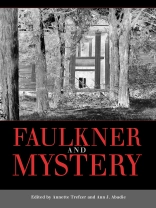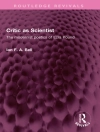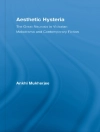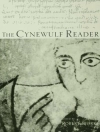Contributions by Hosam Aboul-Ela, Susan V. Donaldson, Richard Godden, Michael Gorra, Lisa Hinrichsen, Donald M. Kartiganer, Sarah Mahurin, Sean Mc Cann, Noel Polk, Esther Sánchez-Pardo, Annette Trefzer, Rachel Watson, and Philip Weinstein
Faulkner and Mystery presents a wide spectrum of compelling arguments about the role and function of mystery in William Faulkner’s fiction. Twelve new essays approach the question of what can be known and what remains a secret in the narratives of the Nobel laureate. Scholars debate whether or not Faulkner’s work attempts to solve mysteries or celebrate the enigmas of life and the elusiveness of truth.
Scholars scrutinize Faulkner’s use of the contemporary crime and detection genre as well as novels that deepen a plot rather than solve it. Several essays are dedicated to exploring the narrative strategies and ideological functions of Faulkner’s take on the detective story, the classic “whodunit.” Among Faulkner’s novels most interested in the format of detection is
Intruder in the Dust, which assumes a central role in this essay collection.
Other contributors explore the thickening mysteries of racial and sexual identity, particularly the enigmatic nature of his female and African American characters. Questions of insight, cognition, and judgment in Faulkner’s work are also at the center of essays that explore his storytelling techniques, plot development, and the inscrutability of language itself.
O autorze
Ann J. Abadie (1939–2024) was associate director emerita of the Center for the Study of Southern Culture at the University of Mississippi as well as coeditor of numerous scholarly collections from the Faulkner and Yoknapatawpha Conference and other books published by University Press of Mississippi.












